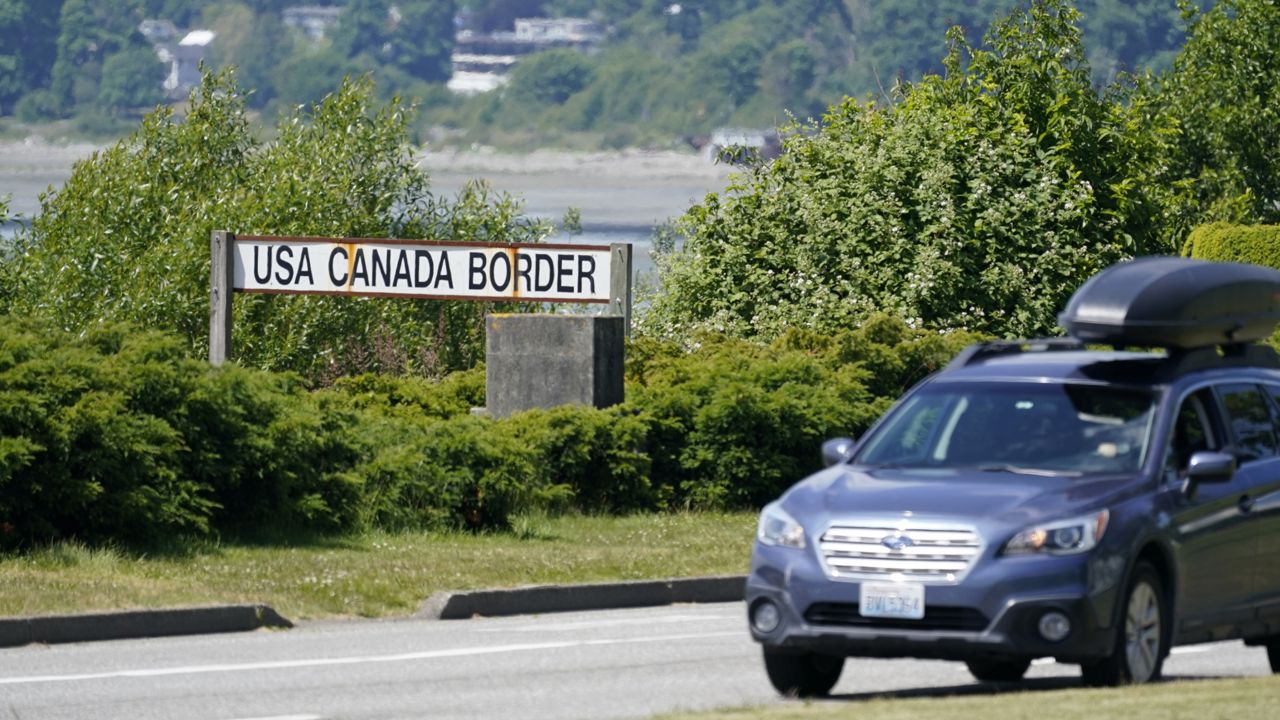As cases of COVID-19 continue to rise among unvaccinated Americans, the United States will continue to restrict border crossings between Mexico and Canada to essential travel only for at least another month.
The Department of Homeland Security announced the news on Wednesday, saying the agency made the decision in order to “decrease the spread of COVID-19, including the Delta variant.” The borders will remain closed through Aug. 21.
The highly-transmissible strain of COVID-19, which was first detected in India, has now made it to at least 90 countries. In the United States, the delta variant accounts for around 83% of current coronavirus infections, with that number rising even higher in some parts of the country.
The DHS added the agency is in “constant contact with Canadian and Mexican counterparts to identify the conditions under which restrictions may be eased safely and sustainably.”
“...Given the sustained human-to human transmission of the virus, coupled with risks posed by new variants, returning to previous levels of travel between the two nations places the personnel staffing land ports of entry between the United States and Canada, as well as the individuals traveling through these ports of entry, at increased risk of exposure to the virus associated with COVID-19,” documents submitted in the Federal Register read in part.
But the news came days after Canada announced it would reopen the border to vaccinated Americans on Aug. 9, with plans to fully reopen the border to vaccinated individuals by Sept. 7, pending “the domestic epidemiologic situation remains favourable,” officials wrote in a statement.
Lawmakers in the United States — particularly those in border towns whose cities rely heavily on tourism — have been pushing the government to reopen the border, or to at least release a definitive plan to do so.
Wednesday’s news drew the ire of at least one such lawmaker, with Rep. Brian Higgins, D-N.Y., calling the decision “completely unnecessary.”
“While the United States does nothing, loved ones remain separated and communities whose economies rely on the cross-border exchange continue to suffer economically,” he added. “Continuation of this shutdown is illogical given the success of vaccines and counterproductive, putting the United States at a disadvantage given Canada’s decision to welcome back vaccinated Americans effective August 9th.”
The restrictions, which limit cross-border travel to essential visits only, will expire on Aug. 21, unless they are renewed before then. DHS Secretary Alejandro Mayorkas did note “positive developments” across the U.S., Mexico and Canada in vaccinating their respective populations.
On June 7, the Centers for Disease Control and Prevention moved both Canada and Mexico from a COVID-19 warning level 4, or “very high,” to level 3, or “high,” in recognition of “conditions that, while still requiring significant safeguards, are improving,” Mayorkas wrote in part.
A little over 59% of the total U.S. population is fully vaccinated against COVID-19, compared to around 51% of the Canadian population and only 17% of Mexico’s total population.
During a briefing on Tuesday, White House press secretary Jen Psaki said any decision to reopen the borders would be “guided by our own public health and medical experts.”



